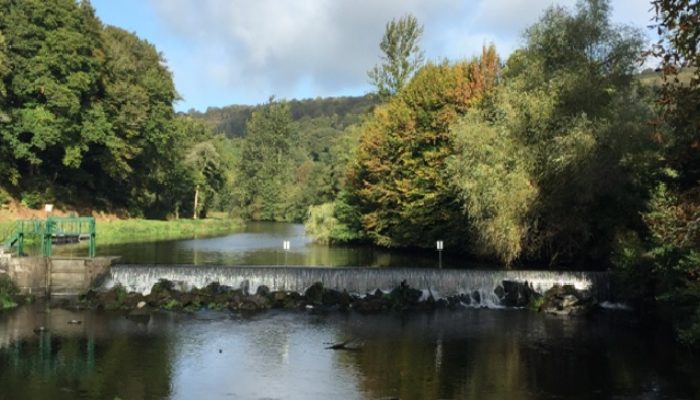
The EGU 2020 John Dalton Medal of the EGU Division on Hydrological Sciences was awarded to Amilcare Porporato for his contributions to the field of ecohydrology and for developing new theories for the analysis of soil-plant-atmosphere systems across scales. Given the online EGU 2020 GA, the medal lecture is postponed to 2021. In April, Amilcare wrote the post below to the HS community.
I’m very happy to reach out to the hydrologic community on this occasion for a virtual toast.
When Maria Helena, our division president, kindly asked me to write a short blog, I said yes enthusiastically: I had in mind a wiener schnitzel and a nice pint of beer to toast with gratitude the many friends and colleagues who supported me for the 2020 Dalton Medal. But now the coronavirus is suggesting a more modest tone, as if reminding us of our responsibility to seek knowledge to protect the environment and serve our society.
I am sure we are all trying to understand better and learn from this situation. I just listened to a political debate on TV, in which a politician was citing the now famous R0 propagation number (originating from a the simple 3-equation dynamical system of susceptible, infected, and recovered (SIR)). How unusual is that?
It is hard to think of a more powerful demonstration of the value of a minimalist model in providing robust and useful indications about a very complex system. We have a few good examples in hydrology as well, in which focusing on dominant variables allows us to describe important emerging behaviors. And it is imperative that we keep developing, very carefully, such minimalist models in the environmental sciences. Not only they are agile alternatives to more comprehensive numerical analyses, but they are also an important tool for communication (perhaps after overcoming the initial embarrassment in explaining to our political leaders that our beloved Budyko’s curve does not even have a peak).
We also have been reminded of how environmental shocks propagate, often unpredictably, through depths of the network of processes forming a complex system. Much like a pulse of soil moisture, a flood and a drought reach even the most hidden biogeochemical and ecohydrologic variables and affect climate and society, so environmental disasters and epidemics impact not only health and economics, but also have unexpected repercussions on the environment. I find following this rabbit hole of nonlinear relationships and feedbacks very fascinating, a scientific adventure that could help us advance our understanding of hydrology and the environment.
John Dalton (1766-1844) is a great example for us in this respect. He was a wonderful scientist and person, making great observations and discoveries in several fields (from atomic theory to hydrology), while living simply. He also transformed a personal problem into a new field of science (Daltonism). A nice lesson.
 Guest Author is Amilcare Porporato, professor of Civil and Environmental Engineering and the Princeton Environmental Institute. Amilcare’s research focuses on the quantitative description and prediction of the complex dynamics of the terrestrial water cycle, with special interest in the impact of the hydrologic cycle on temporal and spatial variability of ecosystem processes (eco-hydrology) and the related energy, carbon and nutrient cycles.
Guest Author is Amilcare Porporato, professor of Civil and Environmental Engineering and the Princeton Environmental Institute. Amilcare’s research focuses on the quantitative description and prediction of the complex dynamics of the terrestrial water cycle, with special interest in the impact of the hydrologic cycle on temporal and spatial variability of ecosystem processes (eco-hydrology) and the related energy, carbon and nutrient cycles.
Edited by Maria-Helena Ramos
